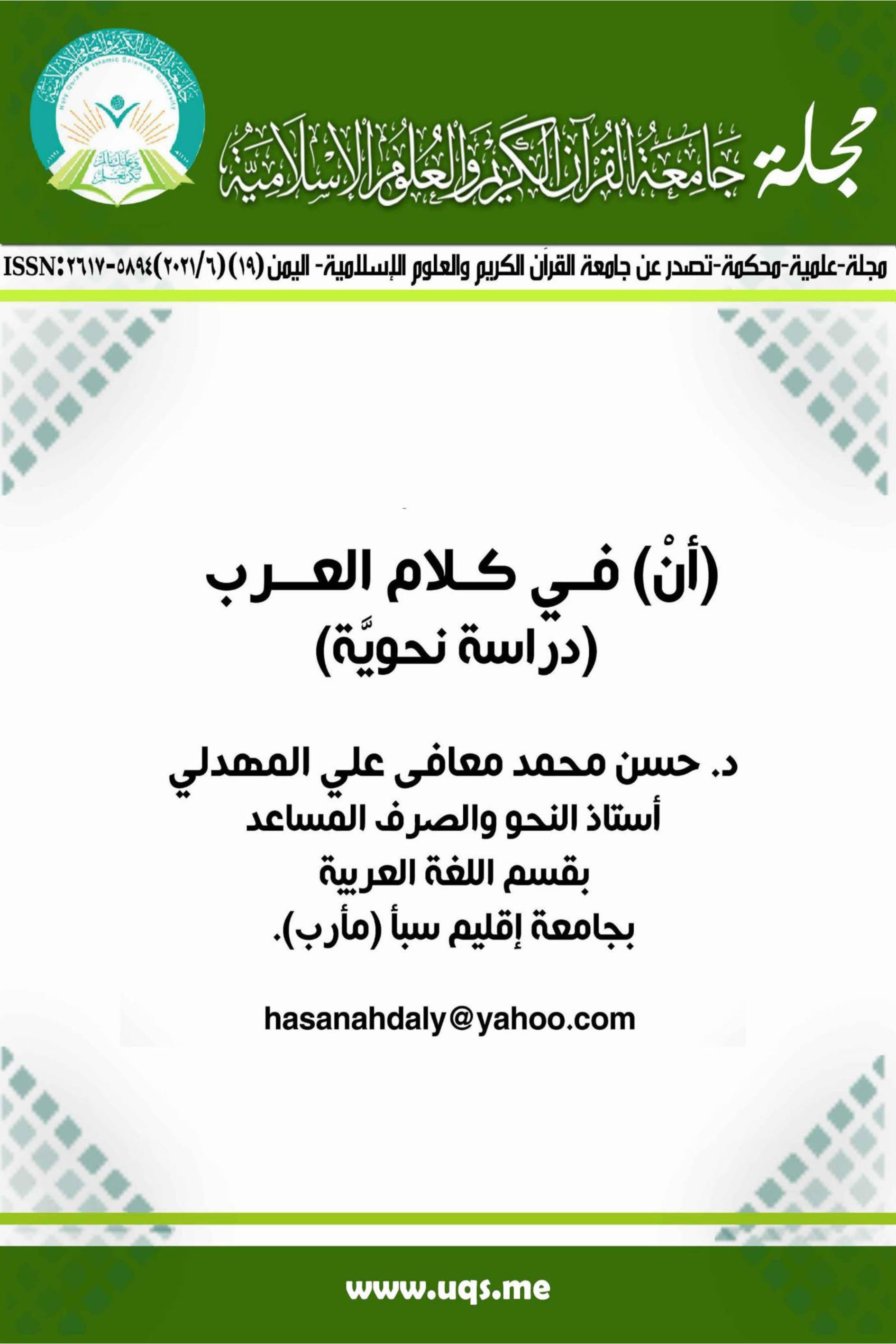(أنْ) في كلام العرب
( دراسة نحوية )
DOI:
https://doi.org/10.61821/bx3ax541Keywords:
أن, مصدرية, المخففة, التفسيرية, جمهور النحاة, الكوفيونAbstract
Prepositions in Arabic are extremely important for sentence struct ure and conveying the meaning. It is also an integral part of the Arab's discourse. An important preposition that I have never studied before h as attracted my attention, namely /"an/, which means in English the W ord 'that', and it has many types that are worth investigating. The study starts with brief introduction followed by the reasons for choosing the research topic, objectives as well as the method. The first chapter disc usses the types of the preposition /"an/, with the short vowel /a/, and t he types of " in/, with the short vowel /1. Then the study mentioned t he considerations of the preposition /"an/ at the majority of grammaria ns and the Kufians, in two sections. The study used the analytical collective descriptive method, in an easy way referring briefly to the disagreement among grammarians. Then the study concluded with the results, the most prominent of which were: the context of speech and the sentence structure have a cl car effect on considering the meanings of the preposition /"anl as they help in identifying its meanings. Among the types of (/"an/ according t o the majority of grammarians are: the accusative infinitive, the reduc ed form of the weighty /"anl as well as the exegetical and extra. The a ccusative /"anl according to the Arabs interferes with past, present, an d imperative. The study also concluded that the preposition /"anl, redu ced from the weighty, remains having the same function, and its noun is a deleted pronoun and its predicate is a sentence. According to Kufi ans, /"an/ is also used for different functions like condition, negation, assertion, and with the meaning of /li"allâ/'lest" and /"ig/'for'. The stu dy came to a number of recommendations, among which are the conce rn of studying the connotation of/"anl, the reduced from the weighty, as well as the extra accusative infinitive as a practical study based on t he Holy Quran so that the researchers can extract the treasure of those connotations the matter that may help in understanding the Holy Quran deeply through language and grammar. The study also recommended that a similar study should be assigned to the students of higher education, with its valuable and accurate information. Finally, the study was concluded by listing the references.
Downloads

Downloads
Published
Issue
Section
License
©This article is an open access article distributed under the terms and conditions of the Creative Commons Attribution (CC BY) license



